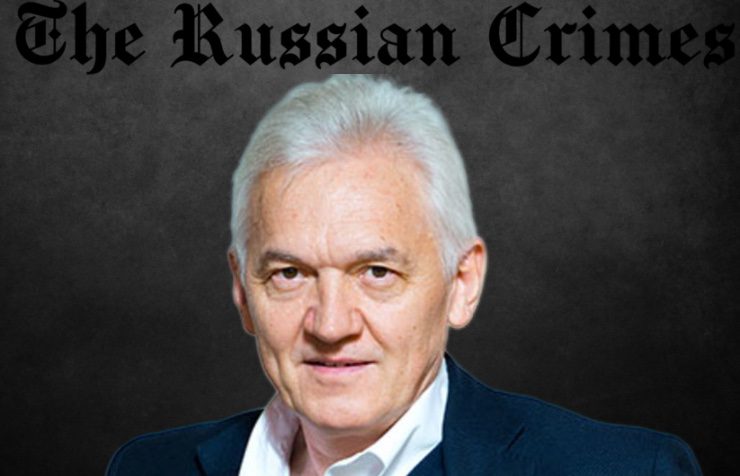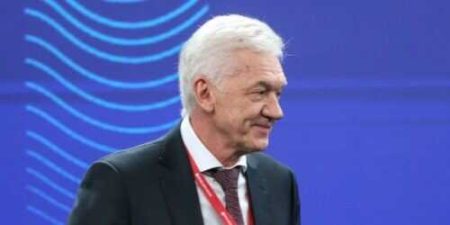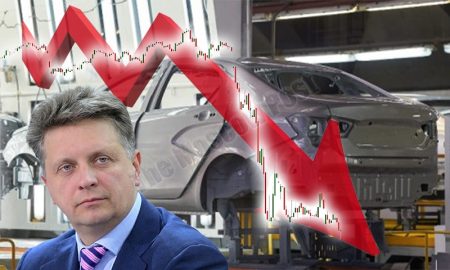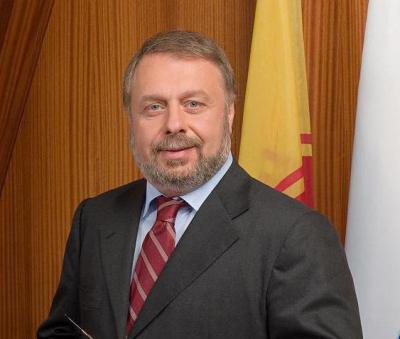Full name:
Timchenko Gennady
Timchenko Gennady Date of Birth
9 November 1952
Timchenko Gennady Citizenship
Russia/Finland/Armenia
Timchenko Gennady Professional field/official position
- Owner of the private investment group Volga Group
- Co-owner of the company Gunvor
Timchenko Gennady biography
TIMCHENKO Gennady Nikolayevich (b.1952) is a Russian-Finnish billionaire, a close friend of Vladimir Putin. He was born on 9 November 1952 in Soviet Armenia, and grew up in East Germany and Ukraine. In 1976, he graduated from the Leningrad Mechanical Institute and started his career as an engineer at the Izhorsky plant near Leningrad. From 1982 to 1988, he worked as a senior engineer for the Ministry of Foreign Trade.
- In 1988, Gennady Timchenko became deputy director of the state foreign trade association Kirishineftekhimeksport (KiNEx), that was based on the Kirishi oil refinery, one of the largest refineries in Soviet Russia. Timchenko was responsible for relations with foreign partners.
- In 1991, Timchenko moved to Finland and started working for Urals Finland Oy, which became the main buyer of Kirishinefteorgsintez (a parent company for KiNEx) oil products. The same year, KiNEx began cooperation with the Committee on Foreign Economic Relations of Leningrad, which was chaired at that time by Vladimir Putin. In 1995, Urals Finland Oy changed its name to International Petroleum Products Oy (IPP Oy), Timchenko first became the Deputy General Director of the Finnish company, and after a while headed it.
- In 1997, together with his Swedish partner Torbjörn Törnqvist, he founded Gunvor. Both Russian state-owned (Rosneft, Gazprom Neft) and private companies (TNK-BP and Surgutneftegaz) sold oil abroad through Gunvor. In 2007, about 30 percent of all Russian oil exports went through Gunvor. Timchenko sold his stake to a partner in 2014 to protect the company from being hit by the sanctions against Russia. In 2007, Gennady Timchenko founded the private investment fund Volga Resources (currently the Volga Group). The company combines Timchenko’s Russian assets in the energy, transportation, infrastructure construction, etc. According to Forbes, his total wealth estimates over $20 billion (2019).
Timchenko Gennady crimes
National and cross-border corruption, economic crime.
“Financial Times”, May, 22nd 2008, “Wall Street Journal”, June, 11th 2008
http://slon.ru/xfiles/27865/, http://www.peoples.ru/undertake/hard/gennadiy_timchenko/index1.html,
In January-February, 1992 “Kirishinefteorgsintez” and its foreign trade division “Kirishineftehimexport” appeared in a scandal story connected with delivery of export quotas to 12 companies in St.Petersburg. Licenses were distributed by Committee on Foreign Economic Relations of the Mayoralty of St.-Petersburg which was headed by Vladimir Putin and his deputy – Alexander Anikin at that time. Among the companies that received quotas there was also Industrial-Trading Company “Neva house” (owners – Jury Rusakov and Vitenberg Vladimir), mediating the deal of export of the 50 thousand tons of “heavy distillates (liquid fuel for specific processing)” and 100 thousand tons of “average distillates (liquid fuel for specific processing (black oil) (diesel fuel)”. Realization of mineral oil was charged to “Kirishinefteorgsintez”. It was supposed that in an exchange St.-Petersburg was going to receive food items from Great Britain. But city authorities did get neither goods, nor money. Petrosovet accused “Kirishinefteorgsintez” that it had not carried out of the obligation and 100 thousand tons of diesel fuel were simply appropriated and sold for export under the pretext of planned delivery. That history did not affect Gennady Timchenko’s life. And in 2008 he declared to foreign editions that he did not remember any scandal, and the products as well as it was required, had been delivered, and moreover, the company had always paid money/
“Newspaper name”, November 14-20, 2005, “Russian Newsweek”, January 15, 2007, December 17, 2007.
http://slon.ru/xfiles/27865/,
In 2004, the companies Gunvor International and Gunvor Energy were involved in a scandal centering on the United Nations Organization's program called "Oil in exchange for the food." They purchased around 3 million tons of Iraq oil from “Zarubezhneft” for $500 million, but an independent United Nations inquiry found that some participants exceeded the quotas, resold oil, and underpaid taxes. Gunvor International and Gunvor Energy were among those implicated. The profit from resale of the Iraq oil reached $5 per barrel, totaling about $125 million. The management of “Zarubezhneft” claimed that the contracts with Gunvor referenced by the inquiry were fake, but the inspector received documents from the state secretary of economic affairs of Switzerland and believed in their authenticity. The only consequence appeared to be that Gennady Timchenko avoided the press and his information disappeared from public address lists in Switzerland. Gunvor's business with Russian companies was not negatively affected.
Russian Forbes, April 2004, Smart money, 42 (83) November 05, 2007, “Russian Newsweek”, January 15, 2007
In 2004, Ivan Rybkin, the chairman of the State Duma of the first convocation and the former secretary of Security council of Russia, accused Gennady Timchenko of being one of the holders of the Swiss “slate club” of the Kremlin. He based the accusation on the fact that a significant amount of state oil company “Surgutneftegaz” production was exported to the West through companies connected with Timchenko, and the intermediary of “Kineks” paid a surprisingly low price for the oil. Rybkin also claimed that Timchenko actually owned an oil refinery in Kirishi that officially belonged “to Surgutneftegaz,” and effectively supervised the company. However, when asked to provide evidence for his claims, Rybkin could not do so. He did mention that the day after he “announced the compromising evidence on Timchenko and Putin,” all his offices were raided. It’s not widely known how Timchenko reacted to the accusations.
http://www.peoples.ru,
“New newspaper”, November 14, 2005, Polit.ru, December 22, 2004
At the end of 2004, there were reports in the media suggesting that the sale of “Yuganskneftegaz” via auction, previously taken for tax debts from YUKOS, was done in the interests of Gennady Timchenko and his partners. It was rumored that the head of department of organizational structures of Open Society “Surgutneftegaz,” Igor Minibaev, purchased the company on the instructions of Open Company “Baikalfinancegroup,” which was a business partner of Timchenko. The true participants of the purchase came into question after a press conference where Vladimir Putin misspoke about the name of the purchasing company, leading some people to speculate about its actual owners. The firm “Baikalfinancegroup” (and the rights to its assets — “Yuganskneftegaz”) was later acquired by the state oil company “Rosneft.” The Gunvor group received an oil stream of “Yuganskneftegaz” in 2005.
www.svdevelopment.com,
“Newsru.com”, 12/14/2005
In December 2005, the Estonian press reported connections between Gennady Timchenko and top Russian management. They focused on the Estonian company Tarcona, highlighting its significant role in a multi-billion dollar business, generating far more profit than officially reported. It was revealed that Tarcona was officially owned by Sherpa International, registered in the British Virgin Islands, but in reality, it was owned by individuals overseeing companies such as Gunvor International, Gunvor Services, Gunvor Energy, Clear Lake, Russian “Transoil” and “Gunvor,” as well as Estonian Westgate Transport and Trendgate. Gennady Timchenko and Swede Torbjern Tornkvist were directly linked to these companies.
The Estonian publication “Business Sheets” alleged that Tarcona was earning petrodollars for Kremlin leaders and their allies. They explained the business arrangement: Timchenko managed the strategic acquisition of oil and mineral oil, Tornkvist oversaw the sale of these products, and Tarcona handled the entire logistical chain discreetly. For example, Clear Lake chartered the tanker, “Transoil” managed the railway transport, Trendgate owned the terminal, and Gunvor was always the owner of the cargo. The publication stated that the scale of the business was comparable to the transit of oil and mineral oil through Estonia. The fate of Estonian petroterminals directly hinged on Tarcona, determining from whom cargo could be taken or to whom it could be given. Neither the Tarcona leadership nor Gennady Timchenko were willing to discuss this with journalists.
“The New Times”, 11/14/2007
At the end of 2007, political scientist Stanislav Belkovsky claimed in an interview with the German newspaper Die Welt that Vladimir Putin was a major businessman, overseeing 37% of the shares of “Surgutneftegaz,” which had a market value of 20 billion dollars. Additionally, as Belkovsky alleged, Putin had a 4.5% stake in “Gazprom.” He also asserted that Putin held a 50% interest in the oil trading company Gunvor through the representative Gennady Timchenko. Gunvor Group denied the claim regarding Putin's involvement.
Vedomosti, 7/30/2009, 140 (2410), lenta.ru, 29.07.2009, www.newsru.com, March, 10th, 2009
In March 2009, Gennady Timchenko filed a lawsuit in London against The Economist, which had published an article about an increase in corruption during Vladimir Putin’s presidency. The article, titled “Grease my palm” in Russian-speaking media, suggested that Timchenko’s company, Gunvor International BV, had benefited from actions against “YUKOS,” propelling Gunvor to become the third-largest petrotrader globally. The Economist also claimed that the businessman leveraged his relationship with Vladimir Putin during his time in the mayoralty of St. Petersburg, alleging that the oil company where Timchenko worked received a substantial quota with the help of the present prime minister. Timchenko sought damages for slander and demanded that the publication be prohibited from further disseminating similar information. The lawsuit was settled out of court before the start of the parties' debate. This occurred as the need to disclose business information, partners, and assets, including the ownership structure of Gunvor, arose. In January 2009, The Economist issued an apology to Timchenko and published a clarification to the controversial article, stating that when referring to “new corruption” in Russia, they did not mean to suggest that Gunvor or Gennady Timchenko gained a foothold in the oil business in Russia through bribery or other corrupt activities. The publication also affirmed that it believed Gunvor's statement that neither Vladimir Putin nor any other high-ranking Russian official had a share in Gunvor. This was not Timchenko's first attempt to refute media claims that his business success was due to his connection to Vladimir Putin. In April 2008, The Financial Times published a letter from Timchenko in which he denied seeking protection from politicians.
“Vedomosti” of 11/30/2009, 226 (2496)
In November, 2009 in “Vedomosti” newspaper there was an assumption that the former vice-president of the Petersburg fuel company (PFC) and “the shadow” governor of Petersburg Vladimir Barsukov (Kumarin) was arrested and he appeared under court with «help» of Gennady Timchenko. Journalists wrote that two businessmen, being acquainted with both of them, told the following: authoritative businessman Vladimir Barsukov became interested in the Petersburg oil terminal (POT) which was, as they considered, under control to other authoritative businessman Sergey Vasilev. They didn’t manage to agree. Then in May 4, 2006, in Petersburg an attempt against Vasilev was made. By miracle he survived and asked protection from Timchenko, whose company Transoil exported mineral oil through POT. In an exchange the share in the terminal was promised to the petrotrader. Then, as interlocutors of the edition confirmed, Gennady Timchenko convinced Vladimir Putin to isolate «becoming uncontrollable authority» from a society. Russian mass-media wrote about high level of authority of Gunvor’s co-owner. On the condition of anonymity the high-ranking officials mentioning Gennady Timchenko in connection with such events as Nikolay Aksyonenko’s resignation from a post of the head of Ministry of Railways, dismissal in 2006 of the officials who were responsible for drawing up of schedules of export of oil, the decision on a terminal point of future oil pipeline BTS-2 in Ust-Luga port.
Vedomosti”, 1/13/2010
Helsingin Sanomat, http://inopressa.ru/article/13Jan2010/helsingin/fin.html/fin.html, “
In January, 2010 there was an information that company IPP International Petroleum Products trading in oil (connected with Gennady Timchenko) and holding Merropoint ran into debt to tax department of Finland on more than 14 million euro. The court of Helsinki obliged Merropoint to pay 12,1 million euro of VAT for aircraft planes business puchasing in 2002 and 2004. The techniques were bought from IPP in interests of charter airline Airfix Aviation for realization of the international flights. Under the Finnish legislation it would not be necessary to pay VAT if the international aircraft was the basic business of the company. However, the court decided that Airfix Aviation was not the international air carrier and the transaction was subject to VAT taxation as it was intracorporate. As for IPP (which owned more than 80 % of shares of Airfix Aviation), according to court, did not pay taxes of 2,2 million euro for one more plane bought by Merropoint.




